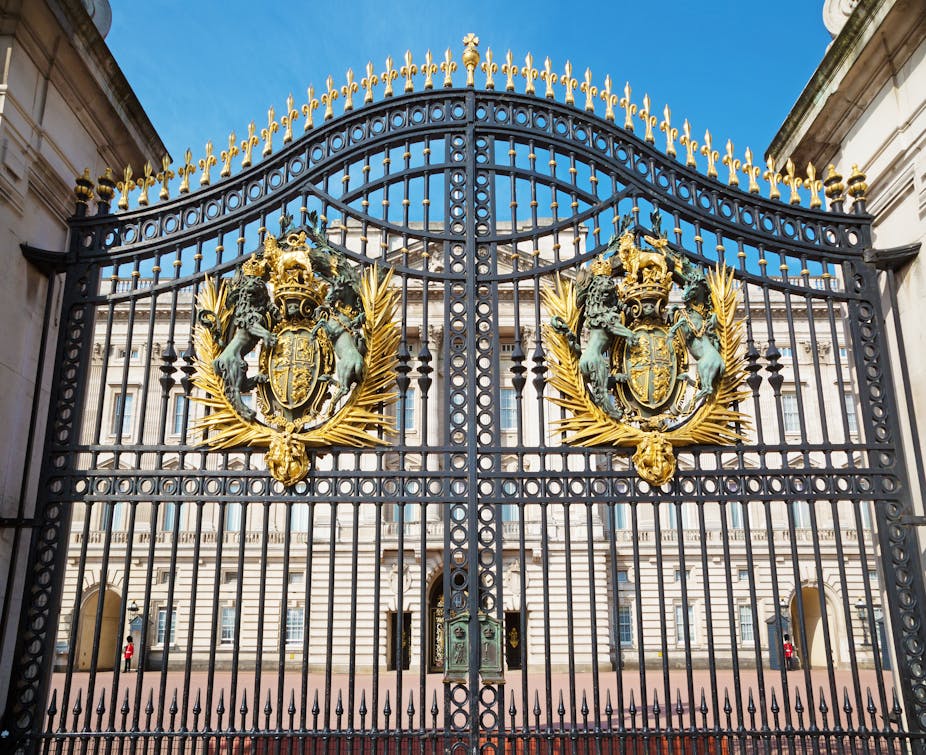Too many National Honours nominees in the UK have been put in an impossible dilemma. Either they reject their well-deserved award or accept it with grave anxieties because of the “British empire” tag to the names. MBE, OBE and CBE stand for “member”, “officer” and “commander” of “the most excellent order of the British empire”. For a conscientious, modern-minded person, it can be like receiving an honour with no honour.
This year, I (Gill Hague) was awarded a CBE for 50 years work combating violence against women, which I accepted to promote the cause. But I feel severe anguish about the name. Colleagues suggested I refuse it. I do feel honoured personally, but it will be shaming, mortifying, to use the name with many of my esteemed partners in NGOs and women’s organisations in former colonial countries and the UK who will be bemused or critical.
Exploitation and slavery
The empire might be held to have done some good in the world – spreading Enlightenment ideals about democracy and individual rights, as well as providing infrastructure and development. But it is a contested history. Many black and minority ethnic UK citizens, in particular, feel deeply wounded by evidence of past injustices, brutalities, arrests, enslavement and indentured labour – and are enduringly hurt by the insensitive titles of the UK National Honours that celebrate empire.
I too (Raminder Kaur) have seen that British minorities and their supporters continue to be upset by such references. Empire recalls a period of exploitation, torture, slavery and deaths, simply because people wanted their freedom. Now, the UK wants to be seen as an outward-facing, international hub, open to engagements with formerly colonised countries. Raminder points out that this makes the old names even more of a problem. She adds: “When I travel to India and explain what OBE or CBE stands for, they either laugh or get angry”.
In many universities and emerging economies, a decolonisation agenda is in progress. The Social Work Department at the University of Johannesburg, for example, is engaged in decolonising its whole curriculum. The UK government’s Department for International Development also funds research that attempts to undo some of the negative outcomes of empire.
These issues are now in the public consciousness, with a wide variety of postcolonial and decolonial literature, TV, radio and digital programmes that address the atrocities of the past – including contributions by renowned journalists like Afua Hirsch and David Olusoga. Indeed, for Remembrance Day 2019, MP David Lammy presented a TV programme about the discriminatory treatment of empire colony soldiers fighting in the world wars. The Honours names are seriously out of sync with contemporary sensibilities.
Declining a distinction

It’s not surprising then that many people are distressed about accepting a National Honour. Nobel Prize winner, the late Doris Lessing declined a damehood because of its associations. The musician, Nitin Sawhney, whose parents are from the Punjab, talked publicly in 2019 about his initial refusal of an OBE. He highlighted some of the unjust and distressing aspects of the treatment of the Indian subcontinent by the empire, and the subsequent national liberation struggle.
Writer, Yasmin Alibhai-Brown, profoundly regretted accepting her Honour, and returned it. Poet, Benjamin Zephaniah, rejected his because he could not bring himself to accept an honour named after the very institution that had literally enslaved his people in chains. This is a common story of upset, and of rejection.
To be honoured for excellent work in society is certainly not at issue. But times and titles change. Queen Elizabeth no longer has the title that Queen Victoria had as “Empress of India”. If this hereditary title can be changed – and the Royals be “modernised” – so too can titles from the colonial period in these more participatory times.
The British empire has not existed for decades. The Commonwealth, succeeding the empire, began in 1931, and most of Britain’s population was born after the empire ended. The names of the National Honours are both a fiction and a source of friction.
There have been moves to replace the word “empire” before. I (Raminder Kaur) have previously written to the Cabinet Office to follow up on earlier recommendations in a 2004 House of Commons report to change “empire” to “excellence”. The Cabinet Office responded with the results of a small survey. After review, they decided to keep the names.
But we urge the government to consider a new addition. We propose that, while the traditional names remain in use, an alternative should be offered specifically to those of deep conviction who feel unable to accept them.
For the National Honours to embrace diversity is not simply to add black and minority ethnic recipients (most of whom are at the lower scale of the Honours list), but to respect their views, and permit a choice of titles that depart from empire. Titles that people can add to their own names without pain, shame or embarrassment.
In law courts, people can swear or affirm on an alternative to the Bible, on grounds of conscience. Surely it would be only fair to offer those of sincere belief and conviction an alternative name, to enable them to accept a National Honour without anguish: “an Honour with honour”.

